‘It is normal, it is common, it is safe’: new network to address lack of information about abortion care, and other access issues


Back in January 1988, the Supreme Court of Canada ruled that Canada’s Criminal Code provisions related to abortion violated women’s Charter guarantee of security of the person, and were therefore unconstitutional. That decision signified the decriminalization of abortion in Canada.
Martha Paynter says the decision was “exceptional and important,” and one that Canadians don’t recognize enough. “35 years ago, we became the only country in the entire world to have completely decriminalized care,” says Paynter. “And we remain the only country in the entire world with completely decriminalized care.”
Paynter is a UNB nursing professor and the spokesperson for the newly founded New Brunswick Abortion Care Network, a group of 20 advocates working in the fields of nursing, obstetrics, family practice, pharmacy and health administration.
“As healthcare providers, we lean on Dr. Henry Morgantaler’s legacy,” says Paynter. “We want to carry on in his footsteps, always expanding access to care.”
CHMA spoke with Martha Paynter to find out more about the New Brunswick Abortion Care Network.
Paynter says despite Canada’s singular place in the global landscape, there are still challenges to abortion access, and one of the biggest is misinformation and lack of information.
“We need to be more forthright and familiar with these very basic and essential parts of our reproductive health repertoire,” says Paynter. “We’ve just had so many years of treating abortion like it was some secret special service… And it is normal, it is common, it is safe.”… Continue
‘We’re all here to make a point’: Rowdy public meeting over French immersion signals trouble ahead for Department of Education policy
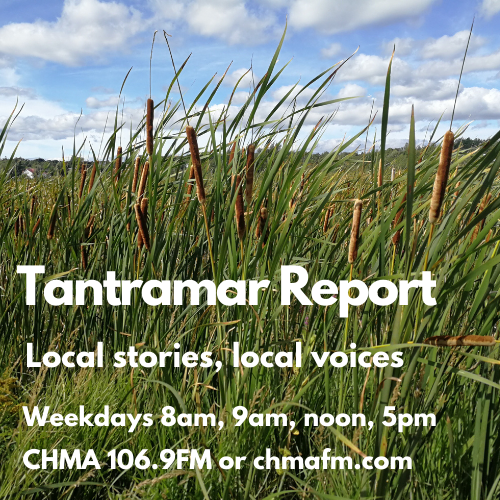
Listen to Tantramar Report for Monday, January 23, 2023:
Deluge in the den? Flood risk assessments offered free to homeowners with basements

An environmental non-profit in Sackville has announced a free program that’s meant to offer peace of mind to area residents worried about how their homes will stand up to flooding conditions.
EOS Eco-Energy is offering the “home flood risk assessment program” for houses with basements, particularly in the Memramcook, Tantramar and Strait Shores regions of southeast New Brunswick.
The program is meant to help homeowners identify how vulnerable their homes are to basement flooding in an age increasingly marked by climate chaos. There are also $100 rebates available for participants to help cover the cost of home improvements.
The organization is encouraging people to sign up before the next big rain or winter thaw.
“Neighborhoods weren’t developed back in the day thinking about so much rain and so much runoff,” said Amanda Marlin, executive director of EOS Eco-Energy, in an interview with CHMA.
Twenty per cent of homes across the country are at risk of flooding, according to the federal government.
And the risks are getting worse with the acceleration of climate change caused by human-generated greenhouse gas emissions.
Listen to the report that aired on CHMA on Thursday, January 19, 2023:
Angry overflow crowd confronts education minister over French immersion reforms, commandeers public consultation


Planned education reforms appear to have stirred a hornet’s nest, if a public consultation meeting in downtown Moncton is any indication.
On Thursday night, the Department of Education held a public meeting at the Delta Beauséjour Hotel over the planned changes to French-language education for anglophone students in New Brunswick.
Listen to the report that aired on CHMA on January 23, 2023:
Around 6:30 p.m., when the session was slated to begin, there were still dozens of people waiting in a line that extended from the conference room down the staircase to the lobby.
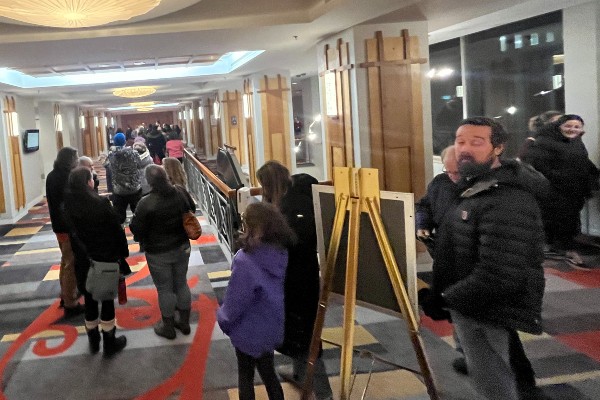
When the conference room reached capacity, workers removed wall panels to add extra space for more tables and chairs. More than 300 people reportedly attended.
Things got rowdy when the session finally got started, about 45 minutes later than planned, as the overflow crowd heckled Minister of Education Bill Hogan and deputy minister John McLaughlin.
Hogan even threatened to shut down the event, but attendees appeared to call his bluff as they began making speeches at mics positioned in the back of the room.
It was a change of plans for organizers. The consultation was supposed to be a World Café, a method that involves small groups discussing an issue, before delegates present the main points to the larger crowd. … Continue
Free ‘home flood risk assessments’ offered to homeowners with basements, as climate crisis fuels wild weather

Listen to Tantramar Report for Thursday, January 19, 2023:
Rare birds ‘very far’ beyond usual northern limits
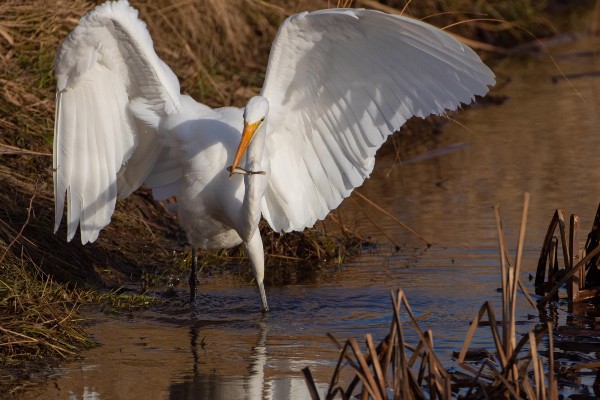

Bird enthusiasts are bewildered by two rare feathered specimens that have taken up residence in Sackville.
A Great White Egret has been hunting for fish among the cattails of the water retention pond for weeks.
The majestic heron-like bird is found across South America year-round, and it ranges widely across Central and North America, reaching as far north as Quebec and New Brunswick.
Tantramar would normally be far beyond its northern limit at this time of year.
Listen to the report that aired on Thursday, January 12, 2023 on CHMA:
The other unusual avian is a Green-tailed Towhee, a kind of sparrow normally found in Mexico and the southwest United States and known by its rust-coloured crown and yellow-green wings and tail.
It has been spotted for weeks near the Tantramar Wetlands Centre, behind the high school.
Both of the so-called “vagrant birds” are far beyond their normal range, but sightings have been reported as recently as Thursday on the website eBird Canada.
For more on this story, CHMA reached out to some local bird experts.
Beth MacDonald is a lab instructor in the biology department of Mount Allison University, where she also teaches ornithology, the study of birds.
Birds often land in the wrong part of the world after getting blown off course by a storm, and young birds are susceptible to flying off in the wrong direction, she said. … Continue
Fort Folly among more than 250 Indigenous communities that experienced long-term water advisories 
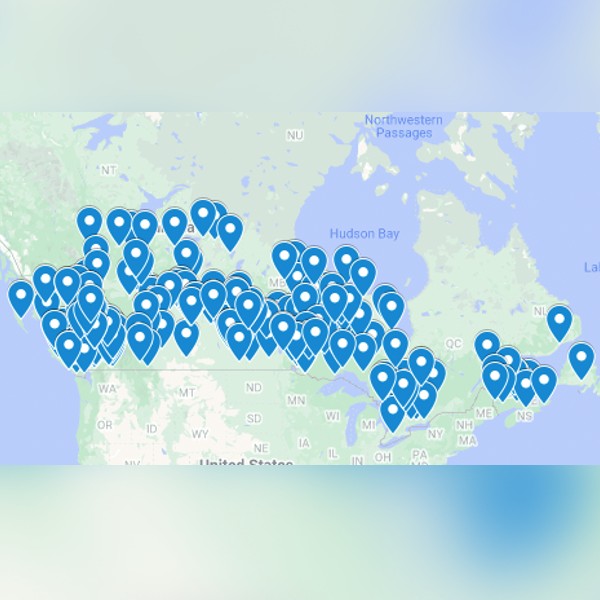
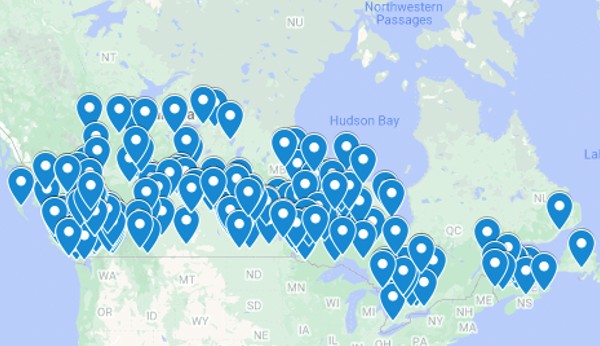
A map of the country is shot through with blue markers, each one pointing to a First Nation that has been affected by a long-term drinking water advisory, meaning that it lasted more than 12 months.
In recent years, the number of communities with unsafe drinking water has dropped, but the long-running problem has remained a source of embarrassment for Canada — and a hazard for residents of the affected communities.
Listen to the interview with Jaclyn McNamara of Toronto-based OKT Law recorded on December 13, 2022:
Now, funds from a massive class-action suit are meant to address ongoing problems with drinking water on reserves and compensate people and communities affected, although statutory limits mean that many individuals aren’t eligible. The deadline for claims is coming up on March 7.
More than 250 communities across Canada affected
In December 2021, the federal court and Manitoba’s Court of Queen’s Bench approved the $8-billion settlement between Canada and First Nations affected by drinking water advisories that lasted more than one year.
The class-action settlement applies to boil water, do not consume and do not use advisories. McNamara said about 262 communities that may be eligible had been identified by December.
An interactive map on the website for the class action shows locations across the country known to have long-term drinking water advisories during the time frames covered by the settlement. … Continue
Housing activists hold ‘mock funeral’ for rent cap, call for province to resurrect short-lived policy
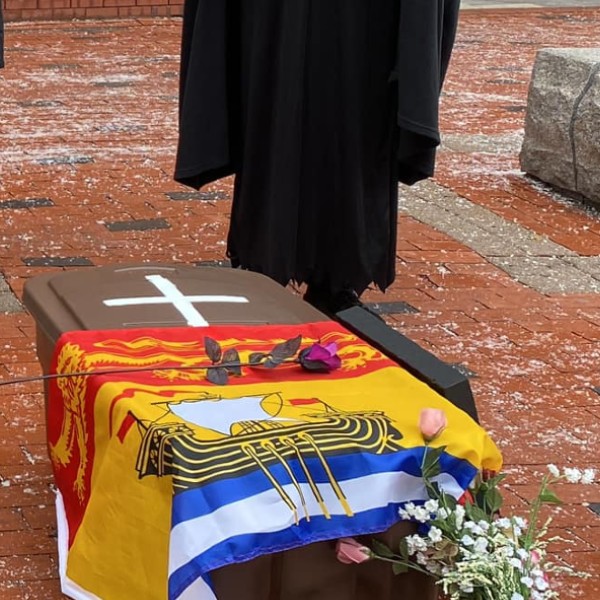
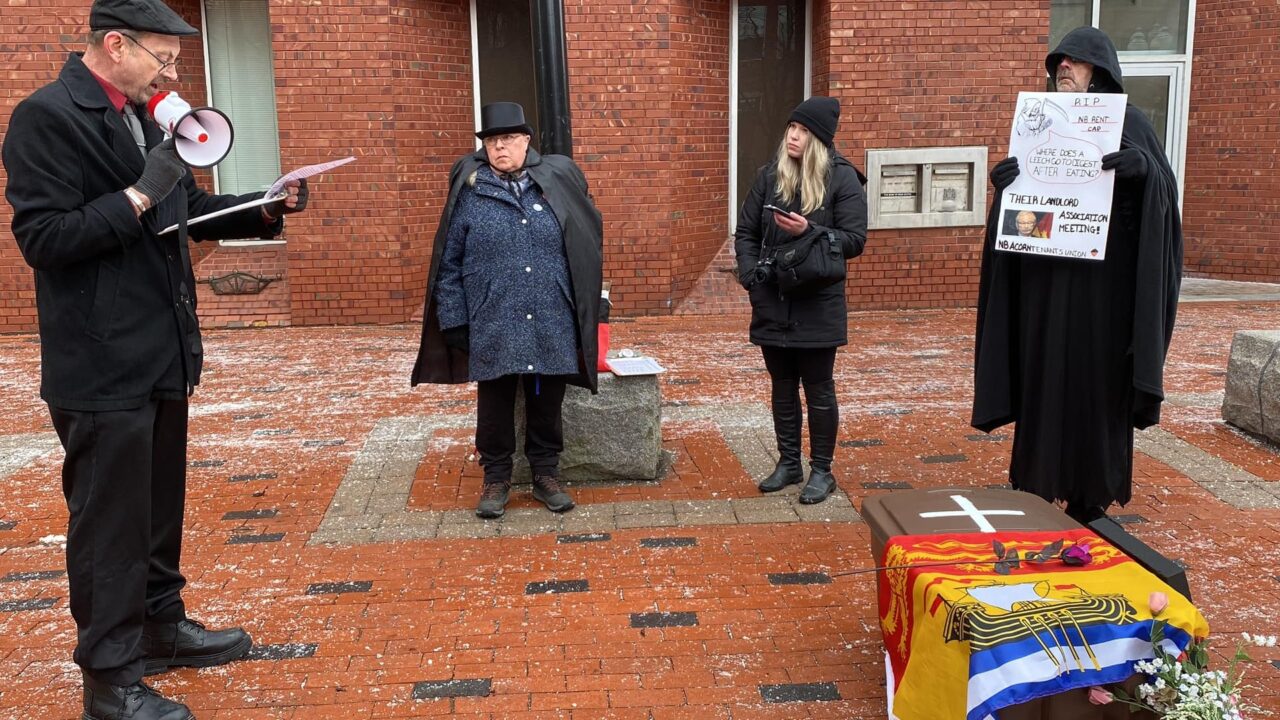
New Brunswick’s short-lived rent cap may end up haunting the government of Premier Blaine Higgs.
ACORN NB, a group that advocates for tenants’ rights, held a “mock funeral” for the 3.8 per cent cap this week in downtown Moncton, complete with a faux-coffin and mourners dressed in black.
Listen to the report that aired on CHMA FM on Thursday, January 5, 2023:
“The rent cap was a dearly loved housing policy for working-class tenants across the province, providing much-needed relief from rent gouging,” ACORN NB co-chair Peter Jongeneelen said in a eulogy for the policy.
Following widespread reports of massive rent increases, the Higgs government introduced a budget in March 2022 that included the temporary rent cap, retroactive to January. The policy expired at midnight on New Year’s Eve.
Jongeneelen said rent control prevented his own landlord from raising his rent by 11 per cent.
He called the government’s decision to end rent control a “slap in the face” for low- and moderate-income tenants, especially considering recent tax cuts for landlords.
Last year, the provincial government reduced property taxes on non-owner-occupied housing by 50 per cent. For years, landlords have insisted that New Brunswick’s so-called “double tax” on rental properties inhibits the construction of apartments, limiting supply and driving up prices.

Tenants’ rights group holds ‘mock funeral’ as rent cap expires

Listen to Tantramar Report for Thursday, January 5, 2023:
Year in review: Stories of local crime, tragedy attracted the most attention in 2022

Listen to Tantramar Report for Wednesday, January 4, 2023:
